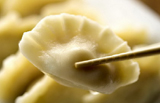China OKs modified corn imports
Updated: 2014-12-19 13:50
By Jack Freifelder in New York(China Daily USA)
|
||||||||
China's lifting of a ban on imports of a genetically modified strain of corn is welcome news in the agricultural community, but the effect on China's agricultural trade will still be muted by domestic surpluses, according to two analysts.
Shawn McCambridge, a senior grains analyst at Jefferies Bache Commodities in Chicago, said the lifting of a ban on Syngenta AG's MIR162, an insect-resistant variety of corn, removes a political sticking point between the United States and China.
"China is facing huge stockpiles of corn right now that they have to deal with domestically, and these supplies are very highly priced relative to the imports that could be brought in," McCambridge told China Daily on Thursday.
"The decision to lift the ban removes an obstacle that had basically shut off corn imports from the US, not only on corn but also eventually on DDGs (dried distiller grains).
"This is something that could have had a long-term effect if the ban had not been lifted," he said. "That kind of gives you a little impression that this was maybe more of a supply-driven decision rather than something that was going to be long term."
John Payne, a market analyst with Daniels Ag Services, said producers of corn-based ethanol fuel may see the biggest bump from the resumption of corn trade between the US and China.
"Demand for corn still exists [in China], and prices tend to run a lot of things, but the real winner would be the DDG producers on the ethanol side," Payne said. "The byproduct of ethanol is DDGs, which are a big input for feed. That's what China tends to import, and that may be something that starts to open things up here.
"The one thing the market was looking for was to actually see some buying, and we didn't see many exports to China over the last few weeks," he said.
More than 9 million tons of DDGs were exported in 2013, an increase of nearly 8 million tons since 2006, according to data from the US Grains Council.
China was responsible for the lion's share of the market in 2013, with 34.2 percent of all DDG exports from the US, and Mexico (16 percent), Canada (6), Japan (5) and Korea (5) rounding out the top five.
On Wednesday, US Agriculture Secretary Tom Vilsack told Reuters that China's Vice-Premier Wang Yang had confirmed China's approval of the imports of MIR 162.
In addition to the approval of corn, China also approved the trade of two biotech soybean varieties developed by Bayer AG and DuPont Co, Vilsack said.
Wang and Vilsack were in Chicago for the China-US Joint Commission on Commerce and Trade (JCCT).
Late last year, China began rejecting corn shipments from the US after it found traces of the MIR162 biotech variety. Bloomberg News reported Thursday that China has turned away more than 1.2 million tons of US corn and corn products, according to estimates from Sylvia Shi, an analyst at Shanghai JC Intelligence.
Dozens of US farmers have sued Syngenta over MIR 162, claiming the seedmaker misled the farm industry about the timeline for approval from China.
In April 2014, the National Grain and Feed Association estimated that rejections of shipments containing MIR 162 corn cost the US agriculture industry at least $1 billion.
China is the largest market for US exports, accounting for nearly 20 percent of all agricultural products in 2013.
Nathan Fields, director of biotechnology and economic analysis for the National Corn Growers Association, said: "What this means from an agricultural standpoint is that US grains will apparently be able to be imported into China again. Politically speaking, it's a very positive move.
"If we can continue to work with the Chinese system to get it more synchronized with the US system, growers would then have access to technologies that are being approved here in the US that could go a long way in dealing with some environmental issues," Fields said. "There's more than just the impact on corn here. It goes beyond that, and really helps out the whole agricultural economy between both countries."
jackfreifelder@chinadailyusa.com

 Christmas mood in the air across China
Christmas mood in the air across China
 Ethnic Tajik life through the lens of a solider
Ethnic Tajik life through the lens of a solider
 Top 10 international financial centers
Top 10 international financial centers
 Chinese dancer joins Nutcracker
Chinese dancer joins Nutcracker
 Learning, giving back through basketball
Learning, giving back through basketball
 Telling stories of the Chinese who fought for US
Telling stories of the Chinese who fought for US
 Yearender: Culture prohibitions in 2014
Yearender: Culture prohibitions in 2014
 Top 10 economic events in 2014
Top 10 economic events in 2014
Most Viewed
Editor's Picks

|

|

|

|

|

|
Today's Top News
NY steps up to aid slain officers' kin
Spree killer seized in south China
Jackie Chan says he did not use connections to help son
Beijing bans private clubs in public parks
Global Christmas buyers embrace Chinese online retailers
Modified crops' market impact not clear yet
AMC silent on showing The Interview
Wanda to stir up theme park industry
US Weekly

|

|







